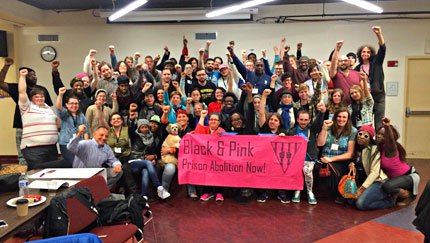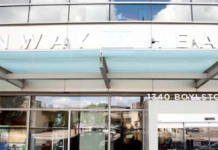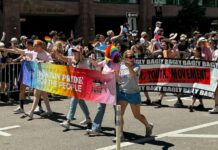
With several states considering “ban the box” legislation—making criminal status checks on job applications illegal—U.S. sentiments seem to be shifting in favor of a more compassionate approach towards those who have done their time. But not much has been done to ease the extra burden of for LGBT ex-cons trying to make a fresh start.
Not much, that is, except the work one Boston-based group has been doing over the past decade. Earlier this month, Black and Pink celebrated its 10th anniversary with some 300 ex-prisioners from 18 states.
The celebration was more than a party for the group, which calls itself “an open family of LGBTQ prisoners and “free world” allies who support each other.”
According to an article in the Rainbow Times, which covered the event, the party served double duty as a networking weekend with speakers and healing and sharing-skills exercises to energize attendees to spread the word about the group’s mission. As the article describes:
[Black and Pink’s] work toward the abolition of the prison industrial complex is rooted in the experience of current and formerly incarcerated people. According to the organization, they are “outraged” by the specific violence of the prison industrial complex against LGBTQ people, and respond through advocacy, education, direct service, and organizing.
“There are chapters of Black and Pink across the country,” National Director Rev. Jason M. Lydon said. “From the outside, we support people on the inside.”
Along with providing support through various programs and services emerging over the past 10 years—including an online pen-pal program and a newsletter connecting those still serving time with the “free world”—the group recently released “a telling report about life in prison called ‘Coming out of Concrete Closets,’ a comprehensive analysis of the largest-ever national survey of LGBTQ prisoners.” The report, states the article,
seeks to offer a tool for organizers and advocates, both inside and outside of prisons, to strengthen national campaigns and grassroots efforts to alleviate the immediate suffering of prisoners and bring an end to the prison industrial complex while centering on the needs of LGBTQ prisoners.








